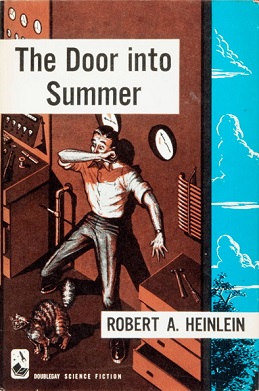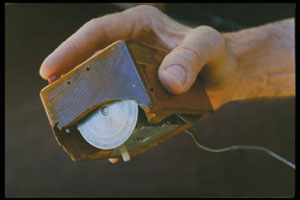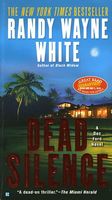
NOTE: This week I've invited my friend Herschel Cozine to do a guest column. Some of you are already familiar with his work; Herschel's short stories and poems have appeared in AHMM, EQMM, Woman's World, Wolfmont Press's Toys for Tots anthologies, and many national children's magazines. He's also published a number of stories in Orchard Press Mysteries, Mouth Full of Bullets, Untreed Reads, Great Mystery and Suspense, Mysterical-E, and others. His story "A Private Hanging" was a finalist for the Derringer Award. Herschel lives with his wife in Santa Rosa, California, and often serves as my wise but unpaid advisor on literary matters. (Herschel, many thanks! Readers, I'll be back in two weeks.) -- John Floyd
I lived many years BC (Before Computers), and have issues that have yet to be resolved. And I am sure I am not alone; certainly my problem resonates with those in my age group.
Allow me to preface my remarks with an anecdote. I was born in an old Victorian house on Long Island, situated on 180 acres of mostly unimproved land. The house and grounds were owned by J. P. Grace, the multi-millionaire banker and businessman. Mr. Grace stipulated in his will that his estate could neither be sold nor subdivided, so it is still intact today. However, since his death many years ago, the grounds have been neglected by his heirs and have fallen into disrepair. The house and most of the buildings burned to the ground at various times over the years.
Recently I discovered that the local historical society had dispatched a team to map and explore the estate. They dug in the places where the structures had once stood, collecting and cataloguing the relics that they unearthed.
I wasn't prepared for this. How would you feel to discover that the house in which you were born was now an archeological dig site? Old. Very old.
With that in mind, it should come as no surprise that I started writing before the age of computers (or digital clocks for that matter). The writers of the day used typewriters, carbon paper and onionskin paper for their file copies. For those of you too young to remember, carbon paper was not made from carbon, nor was the onionskin made from onions. And the typewriter was a clever device that one learned how to operate in high school. Basic. Easy to master. Uncomplicated. Like many inventions of that era (rumble seats, slide rules), it was too good to last.
The writers started by jotting their musings on foolscap, a legal pad, or whatever suited their needs. Then would come the simple, albeit arduous, task of typing it (using the aforementioned typewriter), onto a clean white sheet of stationery, together with a sheet of carbon paper and a sheet of onionskin. Naturally, mistakes were made. Thus the ever-present bottle of whiteout came to the rescue. A blob of that over the typo and the manuscript was good as new. Of course, the typo was forever preserved on the onionskin copy. But that was for one's file and not a big problem. Eventually the imaginative typewriter folks devised a ribbon that had a strip of whiteout incorporated in the ribbon. One simply positioned the platen so the offending typo was under the striker, typed the letter through the whiteout, and then replaced it with the proper letter. Life was beautiful!
Then the electric typewriter made its appearance. Prior to that the darkness of the letters varied with their position on the keyboard. For example, the letter "a" was usually fainter than a "g" or one of the inner letters because one struck the "a" key with his weaker finger. The electric typewriter took care of that problem as well as the one of capital letters that stood half a line above the rest of the word. Life was now even more beautiful.
Then came the typewriter with a memory. Up to ten lines of typing could be stored on the device so one could edit and correct before committing it to paper. Another ingenious work-saving innovation. It couldn't get any better than this.
Then--the computer! Life will never be the same.
My son had to convince me of the advantages of the computer over my clunky, outdated typewriter. Thus I was pulled into the twentieth century just before it in turn was pulled into the twenty-first. I still have the scars.
To begin with, my first computer informed me that I had performed an "illegal operation." I was appalled. I had never received so much as a parking ticket before. I pleaded with it to tell me what it was that I had done, promising never to do it again. But it just sat there, its cursor blinking at me accusingly.
I swore at it, threatened it. "I'm the intelligent one in this room. You are simply a collection of circuit boards and wires. If it weren't for me you would be languishing in some warehouse in Peking. Show some gratitude!"
No response except for the blinking cursor. To this day I don't know what I did wrong.
Thankfully, my present computer is not that judgmental. I no longer get that message.
But I digress. Since my main reason for getting a computer was to simplify and modernize my writing efforts, I removed my typewriter from the den and turned to the word program. Awesome!
I looked at the screen in bewilderment. The options, features, icons, and symbols boggled my mind. Before I could start writing I had choices to make. What font style: Courier, Gothic, Times New Roman, even fonts that printed in symbols resembling hieroglyphics. I settled on Times New Roman and moved on. Font size--from microscopic to billboard. Did I want bold, italics, underline? What color? Did I want headers or footers, indented paragraphs, right justified margins, single or double spacing? What size paper? How about columns? Graphs? Double spacing before or after paragraphs?
I was overwhelmed. I have a hard time deciding between "over easy" or "scrambled" when I eat out. "Panic" is a little too strong a word to define my mental state. But it will suffice for the purpose of this discussion.
By the time I had set up all the parameters I had forgotten what it was I had started out to write. I have reverted to jotting down the story on foolscap ahead of time. This is progress?
With some trepidation I began to write. Suddenly the font changed from Times New Roman to Lucida. What had I done? I later learned from my son that I had not set my defaults. (I thought that only happened to loans.)
I labored on, enduring the whims and peculiarities of the computer, finally reaching the end.
Having finished for the day, I was ready to save my work. This scenario followed:
Computer: Do you want to save this?
Me: I just went through three cups of coffee, two bathroom breaks, four and a half hours of typing, not to mention the ordeal you put me through. Of course I want to save it, you moron!
Computer: Where?
Me: Someplace where I can find it again. I am still looking for the last one which disappeared without a warning. I even called my computer-savvy son, who told me, "You must have hit the delete button," and then hung up. I suppose I would have done the same if I had been called out of an important meeting. But it seemed a bit rude. After all, I am his father.
Computer: What format? HTML, Doc, PDF, RTF, etc.
Me: UCLA, NASA, FBI, GOP. How the hell should I know? You're the expert. You decide.
I have no idea what format my document is in, nor do I care. All I ask is that it is where I stored it and that it is readable. (I recently opened a file to find nothing but rows and rows of symbols and punctuation marks that ran on for three pages.)
Needless to say, I am not a big fan of Bill Gates.
Of course, I understand that a computer is more than a glorified typewriter, and I should be taking advantage of its versatility. I try. I have 378 friends on Facebook, six of whom I have actually met. I am bombarded with crude jokes, tasteless photos, and messages concerning their bodily functions and sexual prowess. I don't spend a lot of time there.
Then, of course, there is e-mail. There was a time when I had to trudge out to the mailbox to get my junk mail. Now I have it delivered directly to my den. (I wonder if that poor man ever managed to get his money out of Nicaragua.)
Ah, but I am beginning to sound like my father. He was convinced that civilization as we know it would not survive the invention of television. Fate was kind to delay the invention of the computer until after he had passed away.
There is a group of men on Long Island who will unearth a rusted, scorched Underwood typewriter in the rubble of my old house. I wish I could be there when that happens. God, how I miss it!
 by Jan Grape
by Jan Grape


















